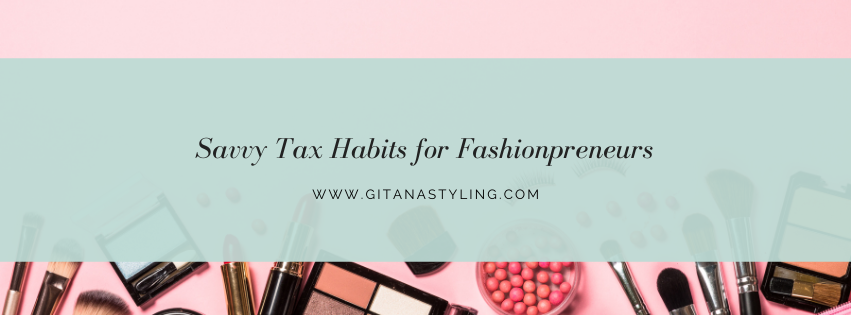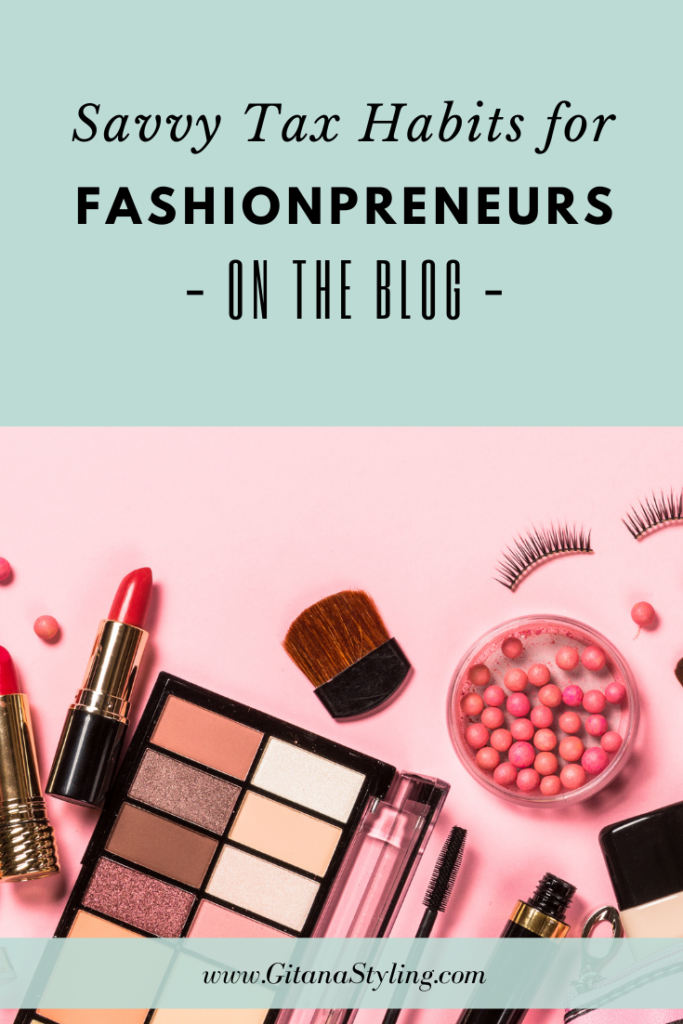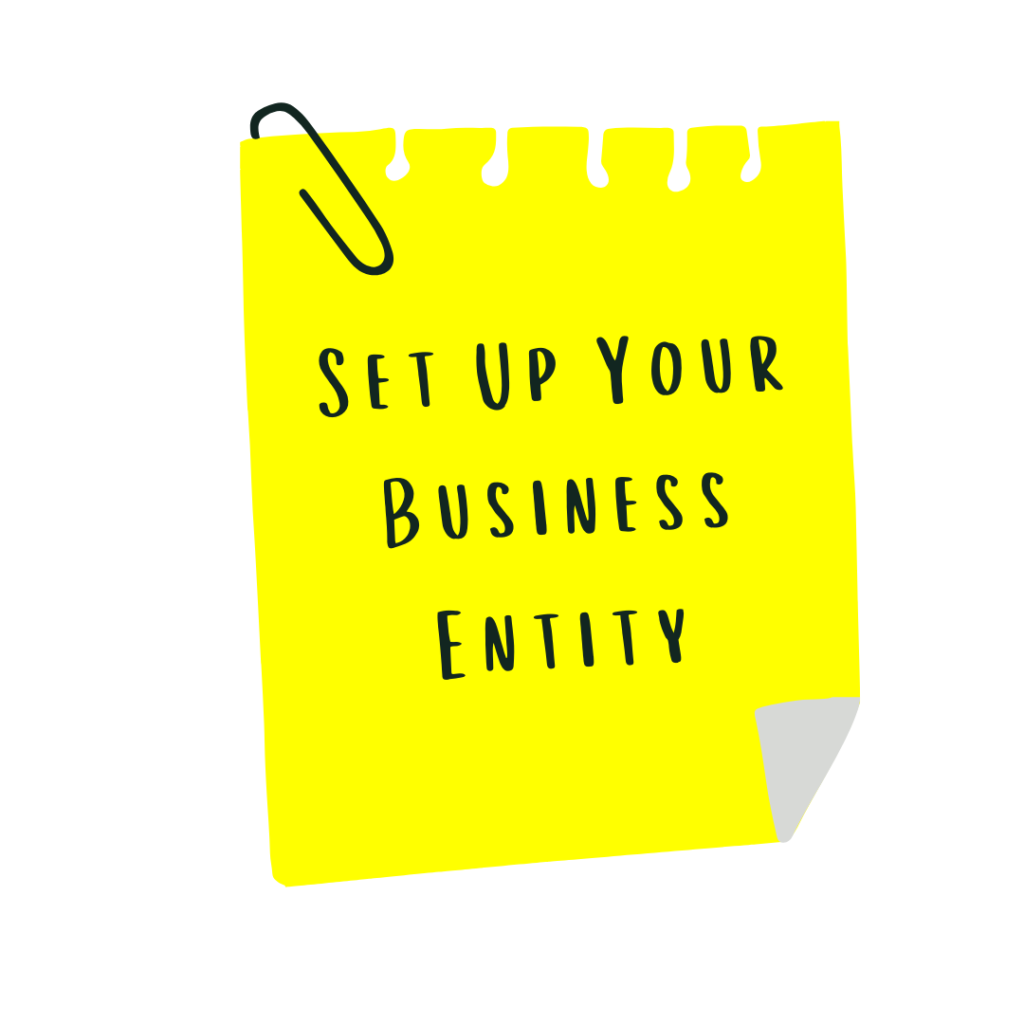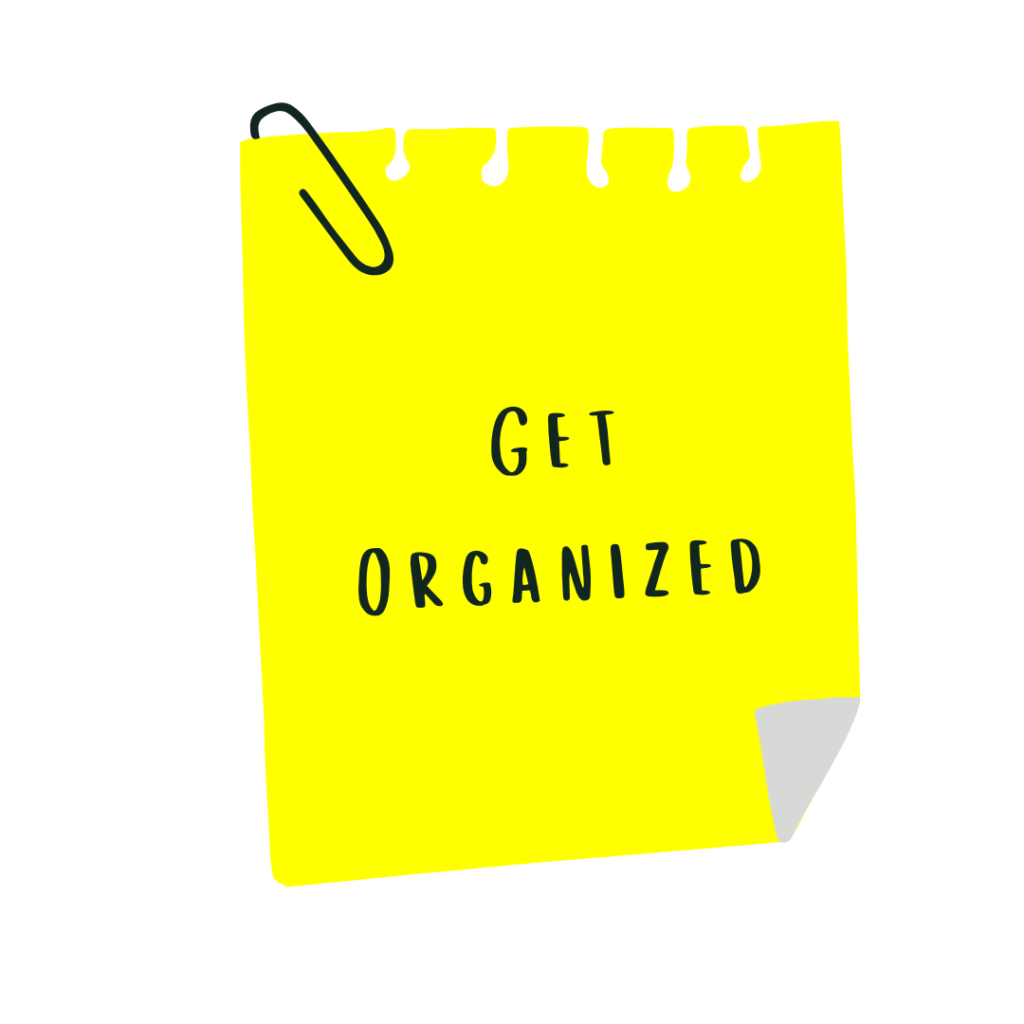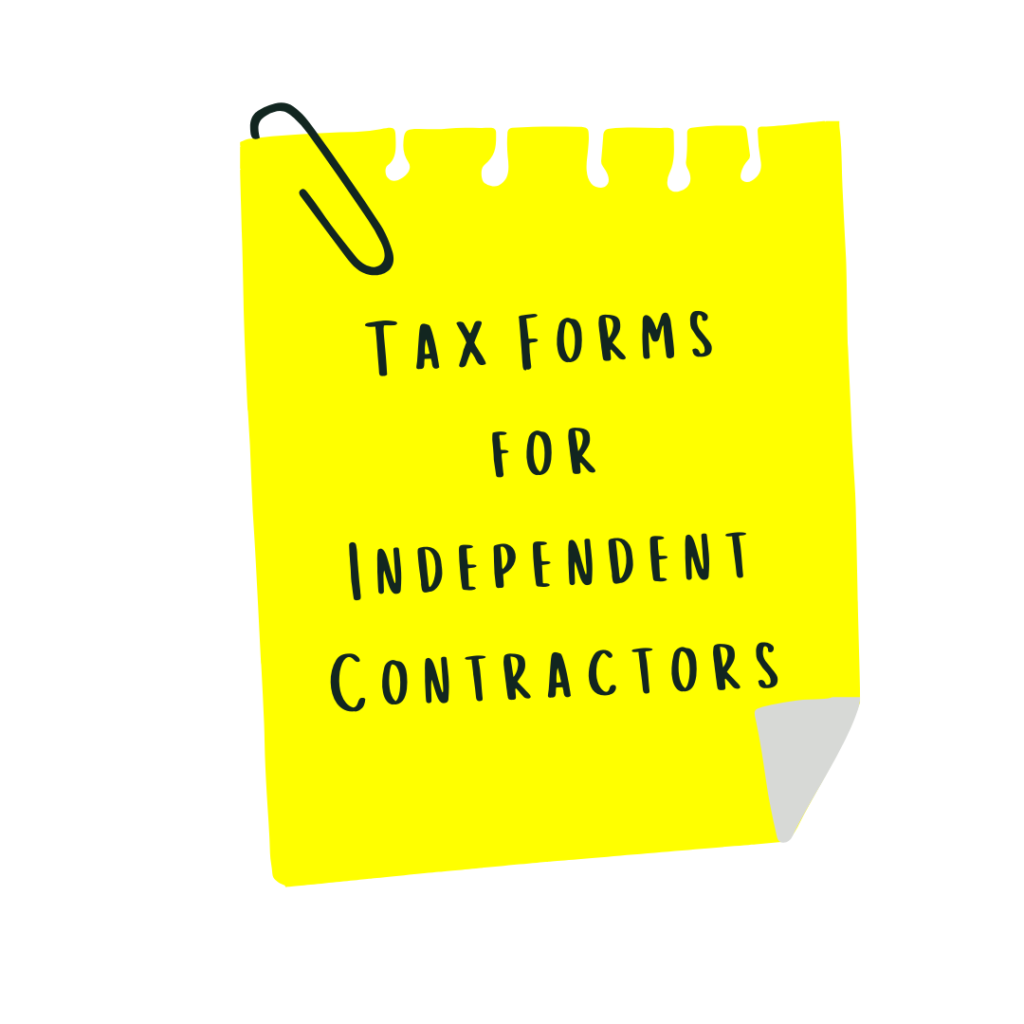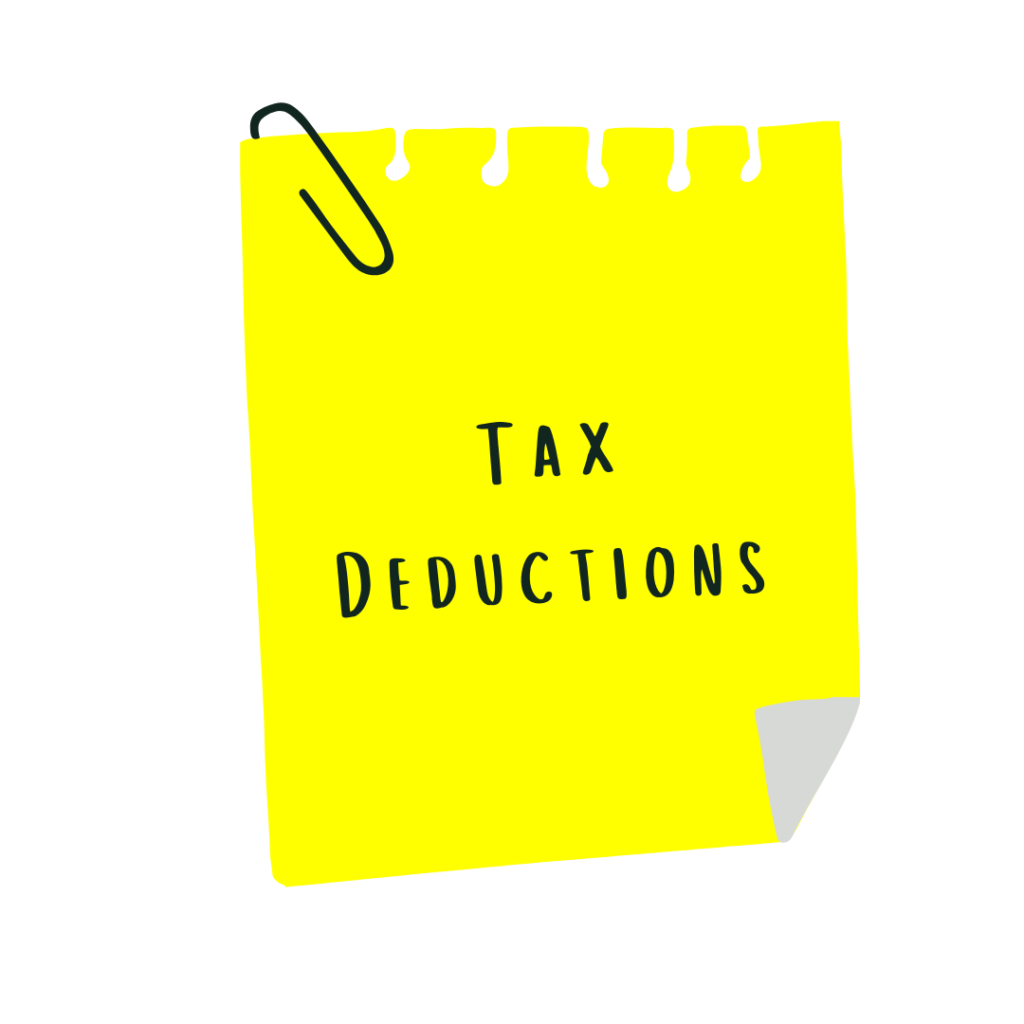Dear Fashionpreneurs, this is a guest post by Derek Goodman of inbizability.com.
Thank you Derek for sharing your expertise with us!
xxx
Sandra
Taxes generated by the public are crucial to keeping a country’s social programs — like the fire department, Social Security, and more — running. However, when we look at how much we give away then get in return — plus the confusing process to complete them at the end of the year involved — it’s easy for fashionpreneurs to feel disillusioned. To minimize the pain and confusion involved in paying taxes, here are a few tips you can use to keep on top of your taxes and make the filing process easier.
Set Up Your Business Entity
Whether your beauty-based business employees full- or part-time workers, contractors, or you work by yourself, setting up your business entity is an important first step. In all of the above scenarios, establishing your business as an LLC, or limited liability company, is a good option for most fashionpreneurs. In addition to enjoying certain tax benefits, you’ll also protect your personal assets from company matters.
You’ll also need to apply for an Employee Identification Number (EIN). An EIN is a government-issued employer ID number. It’s similar to your own social security number, but for your business. The government uses your EIN to officially identify your company, and it’s how the IRS is able to track your payroll taxes. There are several benefits to having an EIN. It will help you open a bank account for your business, hire new employees, and protect your identity (because you won’t have to give your social security number out). Having an EIN will also simplify the process of filing state and federal taxes. Your CPA can help you decide what type of business structure will work best for you so you can obtain your EIN.
Get Organized
Organization and planning ahead are crucial components to business success. By getting a little done every day and arranging your invoices beforehand, you’re less likely to feel overwhelmed when the time comes to pay your taxes.
Save your tax-related paperwork throughout the year in a digital and physical folder; this way, you have a backup. It’s also a good idea to keep all this data stored somewhere safe for at least the next three years in case something comes up, like a legal issue. Having these forms stored and sorted securely will eliminate the hassle and stress involved when looking for a particular document later on.
However, if you have employees, you may discover that filing taxes becomes a little bit more complicated. However, you can use payroll services to automatically file and pay your payroll taxes on time. And if something goes wrong and you receive a penalty, some services provide tax penalty protection so you don’t take a huge financial hit. Additionally, these services can also automate your payroll, allowing you to focus some of your energy elsewhere.
It’s best to file tax returns sooner rather than later; this way, you’re not rushed. Plan the date you’re going to file your taxes ahead of time, giving yourself a little bit of leeway for eventualities.
Tax Forms for Independent Contractors
Your independent contract workers can’t file their taxes without a 1099 form. There are several types of 1099s, but most fashionpreneurs who own small businesses will use a 1099-NEC, which is a new designation. Previously, independent contractors were assigned 1099-MISC forms, but this year, the IRS designated form 1099-NEC for independent contractors who have been paid more than $600 in the last 12 months. The 1099-MISC now applies to miscellaneous expenses such as rent, and the 1099-G is specific to coronavirus unemployment benefits.
To expedite the filing process, you can e-file a 1099 through your payroll system. This is a considerably more efficient method than manually filing — three steps, and you’re done. Upon filing, forms are immediately sent to the IRS and your contractor, who will also receive a paper copy.
Tax Deductions
There are many types of tax deductions that you can use to your advantage, and small businesses have opportunities that you may not be aware of, so we’ll highlight a few to get you started.
If you have any vehicles that you use during the year for business, deliveries, sales calls, or travel, you may be eligible to deduct some of these expenses. These types of deductions could even apply to gasoline, repairs, and parking. Keep track of how much you use during the year, but remember that your personal car expenses won’t be deducted.
Another useful deduction that you can utilize is a bonus depreciation when you use new equipment to upgrade your business. Depreciation tax breaks will let you deduct all of your costs when you purchase a new item. Keep in mind that these are only valid between September 2017 to January 2023. You might want to take advantage of this deduction while it lasts. However, there is always the possibility that this rule may be extended for a longer time.
In Closing…
Hopefully, this article helped you gather some practical information on keeping your tax filings organized and efficient. Get yourself squared away and confident in your fashionpreneur small business financial habits by applying these tips, and you should be feeling relaxed and prepared come tax season.
Article provided by Derek Goodman of inbizability.com.
Want to build a fashion or beauty business that works for you and your life? We are about to send a couple of free tools that will help you do just that! If you want them, let me know where to send them here! Also, join us inside our free Facebook group the Fashion Entrepreneur Club Hangout 🙂

